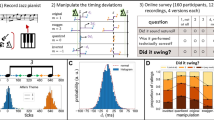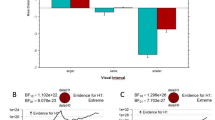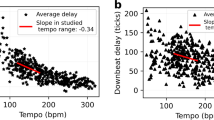Abstract
I HAVE been very much interested in Prof. Bryan's article on pianoforte touch in NATURE of May 8. There is, of course, no question with anyone who is a pianist that dynamic differences of touch produce enormous differences of quality in the tones of a well-made pianoforte. My own observations in the matter do not go very far, but, amongst other things, it has seemed to me that two things are important: (1) the harmonics of a note have always seemed to me to be most prominent when the note has been produced by the least possible “hit” by the fingers, in fact, when the note is practically produced by pressure alone. Pressure alone is, of course, unable to produce a note, and a certain fractional hit is always necessary to give the hammer the necessary momentum.
This is a preview of subscription content, access via your institution
Access options
Subscribe to this journal
Receive 51 print issues and online access
$199.00 per year
only $3.90 per issue
Buy this article
- Purchase on Springer Link
- Instant access to full article PDF
Prices may be subject to local taxes which are calculated during checkout
Similar content being viewed by others
Author information
Authors and Affiliations
Rights and permissions
About this article
Cite this article
WHEATLEY, C. Pianoforte Touch. Nature 91, 347–348 (1913). https://doi.org/10.1038/091347b0
Issue Date:
DOI: https://doi.org/10.1038/091347b0
Comments
By submitting a comment you agree to abide by our Terms and Community Guidelines. If you find something abusive or that does not comply with our terms or guidelines please flag it as inappropriate.



